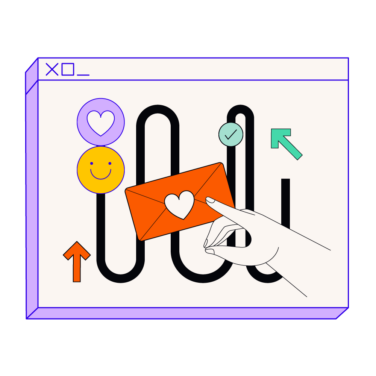Luke Jamieson has a truly inspirational career story. He went from working in a call center in Australia to now leading some of the largest call centers in the Asia Pacific region. He's helped design call centers from the ground up and received worldwide awards and recognition. The key to his success? His focus on the connection between employee and customer experience.
Tell us the story of how you got involved in customer experience. How did your career lead you here?
My story of how I got involved in customer experience is one of “If you don’t know where you’re going, you might end up somewhere interesting”. I left school to pursue a career as a pastry chef (yum!) but after 5 years of working nights and weekends I was feeling like the best years of my life were slipping away so I shut up shop and moved into graphic design and advertising which eventually had me move interstate.
Shortly after however the company shut down and I needed a job whilst I looked for my next advertising gig so I took a call centre role. Well, pardon the pun, I had found my calling. I could see that the industry needed a shake-up and I was keen to trailblaze some of the change. I quickly found myself in a leadership role and my career trajectory was on a serious J curve.
In my career, I have had the privilege of starting contact centres from scratch that have gone on to win the best contact centre in the world as well as leading massive cross-company CX initiatives. I was also lucky enough to learn all about design thinking at D.school at the Stanford campus in Palo Alto.
In which industries, verticals or sectors have you focused your CX career?
Primarily in the financial services sector namely superannuation which is Australia’s retirement scheme worth over a trillion dollars. I love this industry because of what it means for Australians which is a dignified retirement.
Why do so many companies struggle with making CX a priority? What are some common mistakes companies make?
I genuinely believe that companies struggle with this because they define it in such an idyllic way when in fact I think it is quite simply finding friction within your business both for customers and employees and then working towards removing it. Businesses will often think of the most elite experiences for example, what you may find in a hatted restaurant and think that their business needs to have the same experience for their customers however that often looks so far away that companies never start with the basics. Find what is causing agitation and do away with it.
You’ve been selected to give a keynote address at a major CX conference. What topic will you discuss and what major points will you touch on?
My passion lies within employee experience. I have led thousands of people and I have come to learn that within business we often build for the 1% and not the 99. Take for example how we set KPIs within an organisation. Built to achieve the baseline so at best everyone is only aspiring to be mediocre. KPIs rarely have any meaning and most don’t reflect the impact of achieving them has on the business, the customer or the employee.
My topic would be on how to build KPIs that have meaning and impact.
Have you seen, firsthand, any AI impacts on the practice of CX? What impacts are you expecting in the next few years?
I am seeing a big shift toward AI for journey mapping. AI can crunch data and provide insights, personas and customer journeys much faster and more accurately than the current process. Many CX professionals have made their crust off the back of customer journey mapping which is often a long drawn-out process with lots of post-it notes, workshops and research. I think this will become a thing of the past very quickly and CX professionals will need to focus their energy on strategy, impact and innovation.
What skills have served you best in your CX career?
My creativity and audacity to try whacky new approaches to problems. I’m never one to shy away from doing something that raises a few eyebrows and that may fail spectacularly. For every failure, I have had success and vice versa. They key is not to get too hung up on either. Simply learn from it celebrate it and move on. Not sure this is a skill but the other thing that has served me well is the high energy to everything I do. I believe energy attracts energy and the more you give the more you will get back from those you serve.
What’s the best advice you’d give someone just starting out in their CX career, or just starting to transition from a related discipline like call centre or customer service management?
Be curious and maintain the pace. As a kid, I would always pull my toys apart to see how they worked. It drove my parents nuts but I found that this curiosity is one of the key ingredients to a great CX practitioner. Don’t assume just because something is working that it isn’t broken. That sounds silly but often we think a process is working because we don’t hear about it but when you unscrew it all you find out that its broken and people have just found a quick workaround that stops people putting it on your radar. If you’re transitioning from a discipline like call centre then keep the pace. What I mean by that is that customer service is so fast-paced and often CX is anything but. Operating at pace is a fantastic discipline, don’t let things like bureaucracy slow you down. Pace will serve you well.
When did CX as a discipline pop up on your radar? How have you seen it evolve or change over that period of time?
I distinctly remember roles such as the Chief Customer Officer popping up around 2015 which was around the same time that contact centres were getting a much greater voice with the C-suite. This was in my opinion a good thing as CX before that was a marketing function which I found to be a little odd. It sat there because that is where research lived but I saw it as a strange fit because there were no practitioners and it all felt a little academic. Seeing CX become its own entity within an organisation was a positive evolution.
What trend do you think will be most impactful in (your niche of) the CX space over the next three years?
That of AI in its ability to remove mundane tasks from employee roles and customer life admin. This will make interactions more meaningful for both the customer and the employee. It will also drive deeper thought in role design to make roles more meaningful. Customer service will become more white glove and less administrative and there will be a higher value on it both from an industry and customer perspective.


